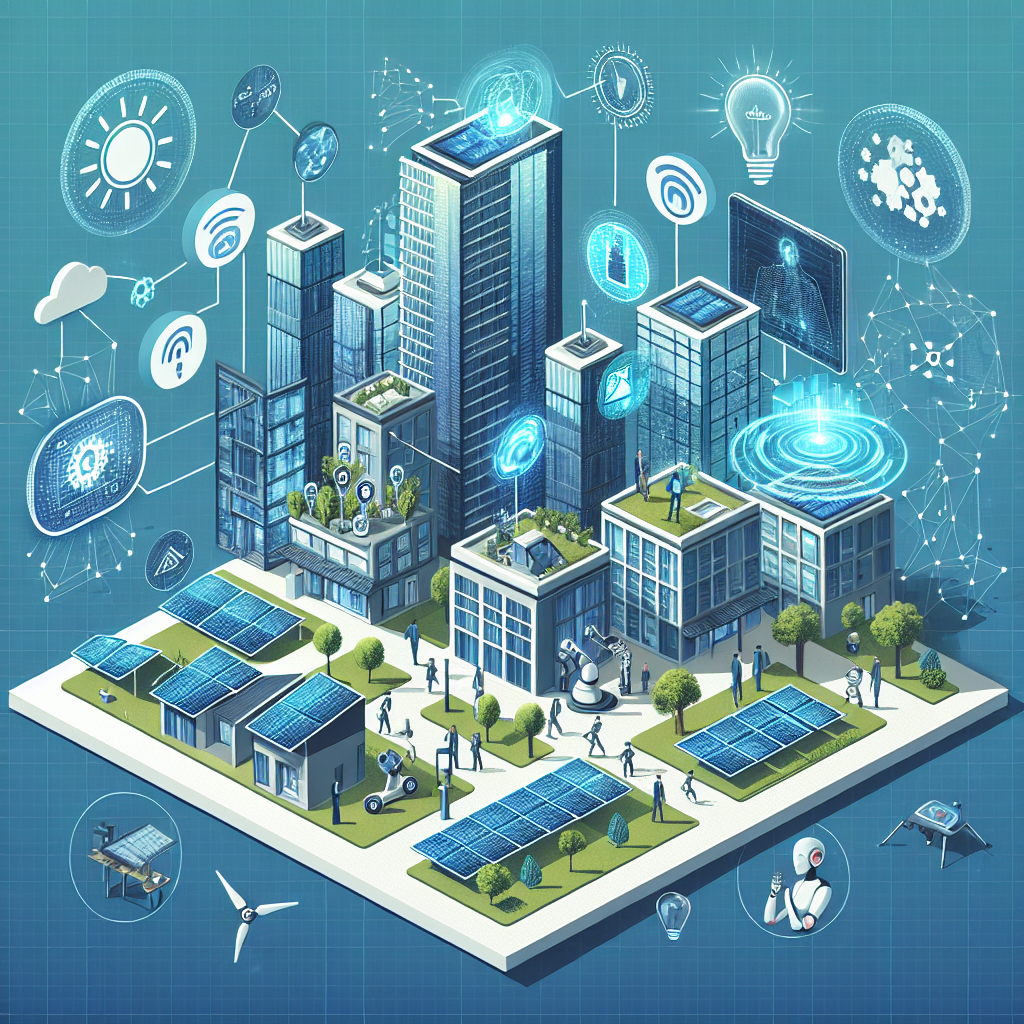The integration of Artificial Intelligence (AI) and Internet of Things (IoT) technology in smart real estate developments is revolutionizing the way buildings are designed, constructed, and managed. These advanced technologies are enhancing the efficiency, sustainability, and overall user experience of properties, making them more attractive to both investors and tenants.
AI and IoT in real estate can provide real-time data on energy consumption, building performance, and occupant behavior, allowing building managers to optimize operations and reduce costs. These technologies can also improve security and safety through advanced surveillance systems and access control measures. Additionally, AI-powered virtual assistants can enhance the tenant experience by providing personalized services and responding to inquiries in real-time.
One of the key benefits of AI and IoT in smart real estate developments is the ability to predict and prevent maintenance issues before they occur. By analyzing data from sensors placed throughout the building, AI algorithms can identify patterns and anomalies that may indicate potential problems. This proactive approach to maintenance not only reduces downtime and repair costs but also improves the overall lifespan of the building’s systems and equipment.
Furthermore, AI and IoT technologies can enhance sustainability efforts in real estate developments by monitoring and optimizing energy usage, water consumption, and waste management. By collecting and analyzing data on environmental impact, building managers can identify areas for improvement and implement strategies to reduce carbon footprint and increase energy efficiency.
In terms of design and construction, AI and IoT can streamline the building process by facilitating communication and collaboration among project stakeholders. Building Information Modeling (BIM) software, which utilizes AI algorithms to analyze and visualize complex building data, can improve decision-making and reduce errors during the design and construction phases. IoT sensors can also be used to monitor construction progress, track materials, and ensure compliance with building codes and regulations.
Overall, the integration of AI and IoT in smart real estate developments is transforming the industry by enhancing efficiency, sustainability, and user experience. As these technologies continue to evolve, we can expect to see even more innovative solutions that will further revolutionize the way buildings are designed, constructed, and managed.
FAQs:
1. How does AI and IoT enhance security in real estate developments?
AI-powered surveillance systems can analyze video footage in real-time to detect suspicious behavior and alert security personnel. IoT sensors can also be used to monitor access control measures and detect unauthorized entry into the building.
2. How can AI and IoT improve energy efficiency in real estate developments?
By collecting and analyzing data on energy consumption, AI algorithms can identify opportunities to reduce waste and optimize building systems for maximum efficiency. IoT sensors can also be used to monitor energy usage in real-time and adjust settings accordingly.
3. What are some of the challenges associated with implementing AI and IoT in real estate developments?
One of the main challenges is the upfront cost of installing sensors and other IoT devices throughout the building. Additionally, there may be concerns about data privacy and security, as these technologies rely on collecting and analyzing large amounts of data.
4. How can AI and IoT enhance the tenant experience in real estate developments?
AI-powered virtual assistants can provide personalized services to tenants, such as scheduling maintenance requests or providing information on local amenities. IoT sensors can also be used to monitor indoor air quality, temperature, and lighting levels to ensure a comfortable living environment.
5. What are some examples of AI and IoT applications in real estate developments?
Some examples include smart thermostats that adjust temperature settings based on occupant behavior, IoT sensors that monitor water usage and detect leaks, and AI-powered chatbots that provide real-time assistance to tenants and visitors.

